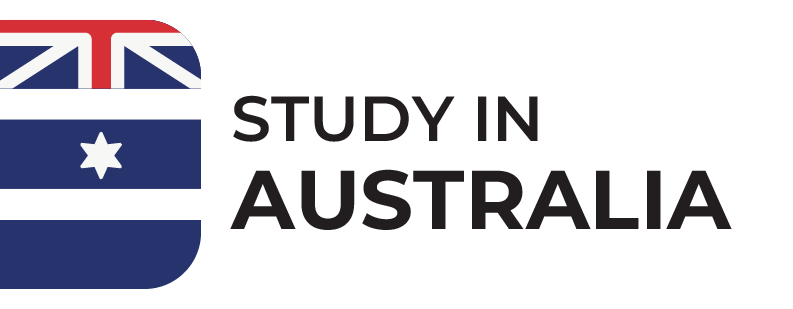As an international student in the land down under, working while studying in Australia may be necessary if you want to get your finances in order. Also, having a job will equip you with industry-related skills that you will be thankful for when you’re out of university.
Here are some steps to follow if you’re on the hunt for full-time or part-time jobs in Australia for international students.
Table of Contents
Understand Employee Protection Laws and Student Visa Conditions
Before searching for international student jobs in Australia, it is best to get informed about your rights as a future worker as well as conditions regarding the Australian Subclass 500 Student Visa.
First, you will want to know the number of hours you can work while holding a student visa. Starting from 1 July 2023, the Government of Australia plans to increase the number of hours students can work. From this date and until further notice, the extension from 40 hours a fortnight to 48 hours per fortnight benefits students who can dedicate more time to work and earn more along the way.
Employee protection laws in Australia apply to all workers regardless of the industry or circumstances. All employees in Australia are entitled to be paid at least the minimum wage, to receive paid leave, work in a safe environment, have protection from unfair dismissal, and more.
As of 1 July 2022, the National Minimum Wage is $21.38 hourly or $812.60 per week for employees who are not covered by an award or registered agreement. To calculate your pay according to your award, use this base rate calculator from the Fair Work Ombudsman.
Both full-time and part-time workers are entitled to four weeks of annual leave for 12 months worked. As for work health and safety (WHS) laws, each state and territory has its own laws and regulators. All Australian businesses must comply with WHS laws to ensure the health and safety of their employees.
Before starting work in Australia, you will have to apply for a Tax File Number (TFN) through the website of the Australian Taxation Office (ATO). You will also want to open an Australian bank account if you haven’t already done so.
Polish Your Portfolio or Resume
The next step in your job search is to learn how to market your skills and knowledge. A work resume and/or portfolio is the best way to present your skills, experience, and qualification to a potential employer. When you apply for a job, your resume makes the first impression as it is the first document an employer sees. For this reason, it is crucial that you pay attention to how you present yourself.
Here are some key points to consider when preparing your resume or portfolio:
- Always include contact information that is up-to-date and relevant.
- Write in a simple and easy-to-read format.
- Customise your resume to include relevant experience and qualifications for the job you are applying for.
- If you don’t have work experience, include volunteer work, internships, and other experiences in which you have gained useful knowledge and skills.
- Include your strengths, skills, current education status, and any certifications or achievements that are relevant to the job.
- For portfolios: provide samples of work that demonstrate your skills or knowledge in the position you are applying for.
Gain Work Experience Through Volunteering & Internships
If you’re struggling to land a job in Australia due to not having work experience, volunteering and internship opportunities are important assets in gaining employment skills. These experiences are typically unpaid if they are considered a vocational placement or there is no employment relationship in place. However, some larger companies pay their interns if they are doing productive work while learning.
Some universities include or require internships in their curriculums, depending on the study program. Many of these universities will collaborate with host companies to facilitate the placement process for their students.
If you are interested in finding an internship or volunteering opportunity, check your university’s website or student centres to find out about upcoming networking events or internship postings.
Later in this article, we will include some employment websites and resources that can also be useful for finding internships.
Explore Student Employability Programs at Your University
Most Australian universities provide vast resources for their students, be it financial aid, physical and mental health services, libraries, tutoring, or any other resource. Among these, universities also place great importance on career support, seeing that as institutions, they are ultimately preparing students to enter the workforce.
To ensure students have the necessary resources and career guidance, universities create student employment programs and collaborate with recruiters.
Here are some example links to university-specific resources:
- Griffith University – Careers and Employment Service
- Macquarie University – Student Employment Service
- Monash University – Jobs for Students program
- University of South Australia – Career Services for Students and Graduates
- The University of Melbourne – Careers
- The University of Sydney – Careers
Check with the university you’re enrolled in for more detailed information on how they can help you find employment opportunities.
Check Employment Websites
Employment websites and other online platforms are one of the best ways to find a job, internship, or volunteer opportunity. Considering that many recruiters and hiring managers are focusing their efforts on using electronic resources during the hiring process, you will find a variety of fresh job postings each time you check these platforms.
Here are some of the most widely used employment platforms in Australia:
- Adzuna
- Australian Job Search (government-funded job search site)
- CareerJet
- CareerOne
- Freelancing Hub Australia
- Indeed
- Jora
- My Career
- Seek
Most of these websites allow you to filter your job search by location, date posted, experience level, job type, education level, and more. Use these filters to refine your search and find opportunities that match your interest and are appropriate for students. If the website requires creating a profile to apply for a job, make sure that it looks professional and includes relevant information.
Due to the high visibility and, therefore, the high number of applicants on these websites, many job posters will ask you to submit a cover letter together with a resume/portfolio so it is easier for them to filter out applicants. A cover letter may be considered outdated by some, but in many cases, it gives job seekers an opportunity to stand out from the crowd. Most employers will develop a better understanding of your skills and what you bring to the job if you write a good cover letter; therefore, make sure to put some effort into this as well.
Student Job Ideas
Being an international student in Australia has its fair share of confusing moments. If you don’t know how to approach the labour market and need ideas on what jobs are available to students, we’ve got you covered.
Here are student job examples to give you some inspiration:
- Administrative Assistant
- Babysitter
- Bartender/Barista
- Catering Assistant
- Community Support Worker
- Content Creator/Writer
- Customer Service Officer
- Data Entry Officer
- Delivery Driver
- Dog Walker
- Events Manager
- Housekeeper
- Library Assistant
- Paralegal
- Personal Assistant
- Receptionist
- Sales Assistant
- Social Media Manager
- Tutor
- Uber Driver
- Waiter/tress
Considering that there is a current labour shortage, finding jobs for international students in Australia should not be a very challenging process. Approach employers with confidence, try to pick up new skills as you go, spruce up your resume, and use these resources to find your new job. Best of luck!

